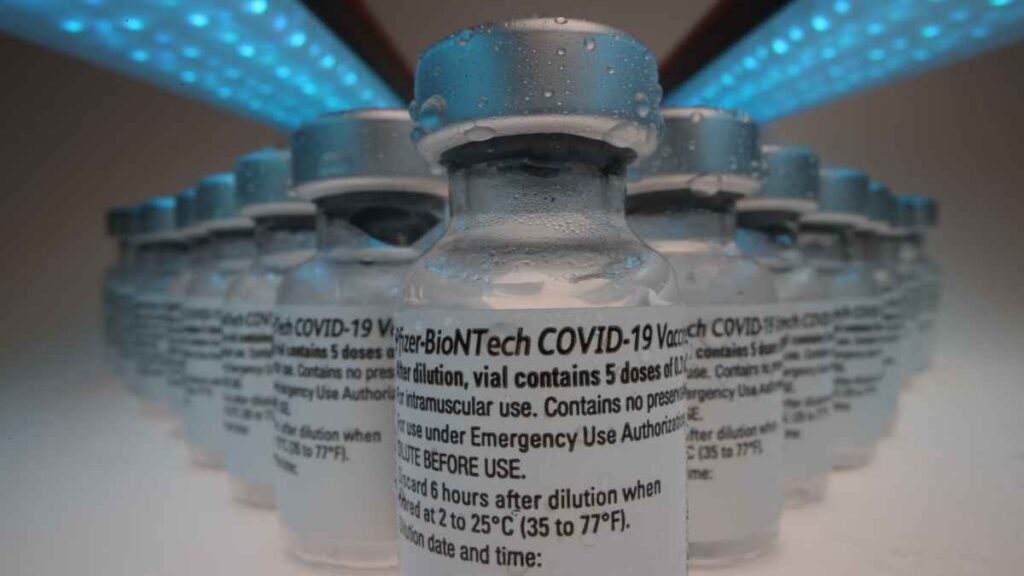
The U.S. Food and Drug Administration (FDA) finally authorized on Wednesday Pfizer and BioNTech vaccine booster dose against COVID-19’s delta variant for Americans aged 65 and older with a high risk of grave illness.
While the dose will strictly involve a specific population group, boosters will be accessible to individuals between 18 and 64 years with health-threatening risks of extreme illness from the coronavirus. In parallel, the dose will be given to employees working in explicit establishments or hold certain job positions that might expose them to contracting severe COVID-19 complications, such as doctors and nurses, teachers, daycare employees, grocery workers, and people in homeless shelters.
According to the FDA’s statement, the third booster dose should be administered six months after the first two shots.
“The FDA considered the committee’s input and conducted its own thorough review of the submitted data to reach today’s decision,” director of the FDA’s Center for Biologics Evaluation and Research, Peter Marks said in a statement.
“We will continue to analyze data submitted to the FDA pertaining to the use of booster doses of COVID-19 vaccines, and we will make further decisions as appropriate based on the data,” he added.
The FDA’s authorization will pave the way for what seems to be a complicated campaign to distribute the shots to the country’s most exposed and susceptible population, leading to potentially millions of Americans getting their vaccines at pharmacies, health clinics, and doctors’ offices.
While the administration endorsed the shots, Pfizer Inc. set safety and side effects measures by analyzing the booster’s effects in a clinical trial that involved 318 people.
During the clinical trial, the first category comprised of 306 individuals ranged between 18 and 55 years old while 12 people exceeded 65 years. The process took two months of monitoring while analyzing side effects such as pain, redness, swelling at the injection site, fatigue, headache, muscle and joint pain, and chills.
While the third Pfizer- BioNTech shot has similar side effects to the first two shots, the FDA disclosed that a set of participants frequently suffered from swollen lymph nodes in their underarms after receiving the booster shot.

The U.S. Centers for Disease Control’s (CDC) Advisory Committee on Immunization Practice conducted a prolonged meeting on Wednesday to address collected data to analyze the effectiveness and assurance of the Pfizer-BioNTech third shot. While the committee has already studied the data, its final recommendation will be settled during its assemblage on Tuesday.
The FDA’s authorization will set the right framework for the Committee’s recommendations regarding boosters, as the CDC aims to make equitable approvals from a public health perspective, which in CDC’s advisors’ opinion should be based on preventing the intensity of the disease instead of aiming to prevent moderate infections.
As for the individuals who received a different vaccine, the FDA’s booster shot approval and the CDC’s data analysis will not refer to Moderna and Johnson & Johnson doses, as federal actions will take place in the upcoming weeks.
An FDA official, Doran Fink, engaged in CDC’s recommendatory meeting, disclosed that the federal agency does not have sufficient data to endorse the success and effectiveness of administering a Pfizer- BioNTech booster to individuals who got immunized with a different vaccine.
The FDA’s Wednesday authorization listed the U.S. as the world’s most prosperous nation to deliver booster doses, joining a league incorporating Germany, France, Israel, and the U.K.
While some public health specialists prefer if doses were sent to countries with lower vaccine rates, the Biden Administration pledged on Wednesday at a virtual COVID-19 summit to distribute an additional backup health package comprised of 500 million Pfizer doses to countries in need.
“We believe boosters have an important role in play in addressing the continued threat of this disease, alongside efforts to increase global access and uptake among the unvaccinated,” chairman and chief executive of Pfizer, Albert Bourla said in a statement.
The vagueness following the CDC’s decision will linger until its meeting on Tuesday, while the FDA’s ruling could potentially detriment the Biden Administration’s scheme to distribute booster shoots to the majority of the country’s citizens.